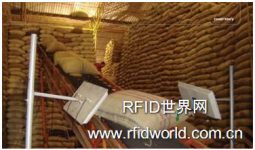
Colombia adopts RFID to monitor coffee supply chain
[ad_1]
Almacafe is a non-profit organization responsible for selecting excellent coffee beans for the Colombian federal government to respond to competition in other markets around the world.
In Colombia, many families still rely on growing coffee for their livelihoods. And Almacafe has been committed to improving the living standards of local coffee farmers, reducing production costs, and improving the quality and sales of coffee beans.
The local government has always advocated the production of high-quality coffee beans with the characteristics of the country. In 2007, the government began to use RFID technology to monitor the entire supply chain, and use this technology to understand information such as the origin and variety of products; for consumers, RFID technology also provides important product information to improve consumer experience.
In order to provide further personalized services, Almacafe introduced Gen 2 RFID into the coffee supply chain. The label is embedded in the plastic capsule to protect it from external forces. Coffee bean farmers’ organizations have a huge demand for labels, so the federal government buys labels uniformly at a price of 25 cents each.
Before sending these tags to farmers, each tag must be written with the grower’s ID code, which contains information such as the area number and coffee type provided by the Almacafe database. When the coffee beans are bagged, they are immediately labeled one by one. When bags of coffee beans pass through the conveyor belt, the RFID antennas on both sides read the tags from time to time, and the reading rate is as high as 9.9%. During the processing, the label records each step. If a bag of coffee beans is rejected for processing, it means that the quality of the product has not reached the set standard and cannot be sent.
Through the analysis report of coffee bean products, all the coffee beans that do not meet the customer’s standard quality are filtered out, and the system will automatically update the information. The information in the label and the delivery time are stored in the RFIDTrack database. You can also see the relevant RFID information when you log in to the SysTrack website.

Antennas on both sides of the conveyor belt read the ID code of the RFID tag on the coffee bag
As early as 2004, Almacafe began to use barcodes to manage the supply chain, but found that this manual scanning method was too time-consuming and inefficient, so it switched to RFID technology in 2006. Generally, before the product is ready for export, Almacafe will first use this system to automatically screen and filter out the coffee beans that do not meet the standards.
In order to meet the requirements of the federal government, most coffee farmers will continue to improve their planting techniques to produce products with better quality and characteristics of the country. RFID technology is to provide consumers with unexpected value-added services. Customers can also use the BeanTrack website to learn about the source of the coffee purchased, information about the grower, soil quality and even the location map.
RFID has brought many business opportunities to Almacafe. At an annual coffee special exhibition in the United States, Colombia expanded its coffee beans to the “Tanzania” market, and the RFID system also opened up the popularity of Colombian coffee. For example, Juan Valdez Café, a Colombian coffee chain (with branches in the United States, Chile, Ecuador, and Spain), has a vending machine in the store to promote domestic coffee. Consumers only need to enter the number on the outer packaging. Get information about the coffee beans you buy.
This is a case of successful application of RFID technology. It not only simply showcases the technology, but also promotes the economic development of this industry and awakens everyone’s attention to product value.
The application won the Best Application Award in the 2010 RFID Journal Awards.
[ad_2]



